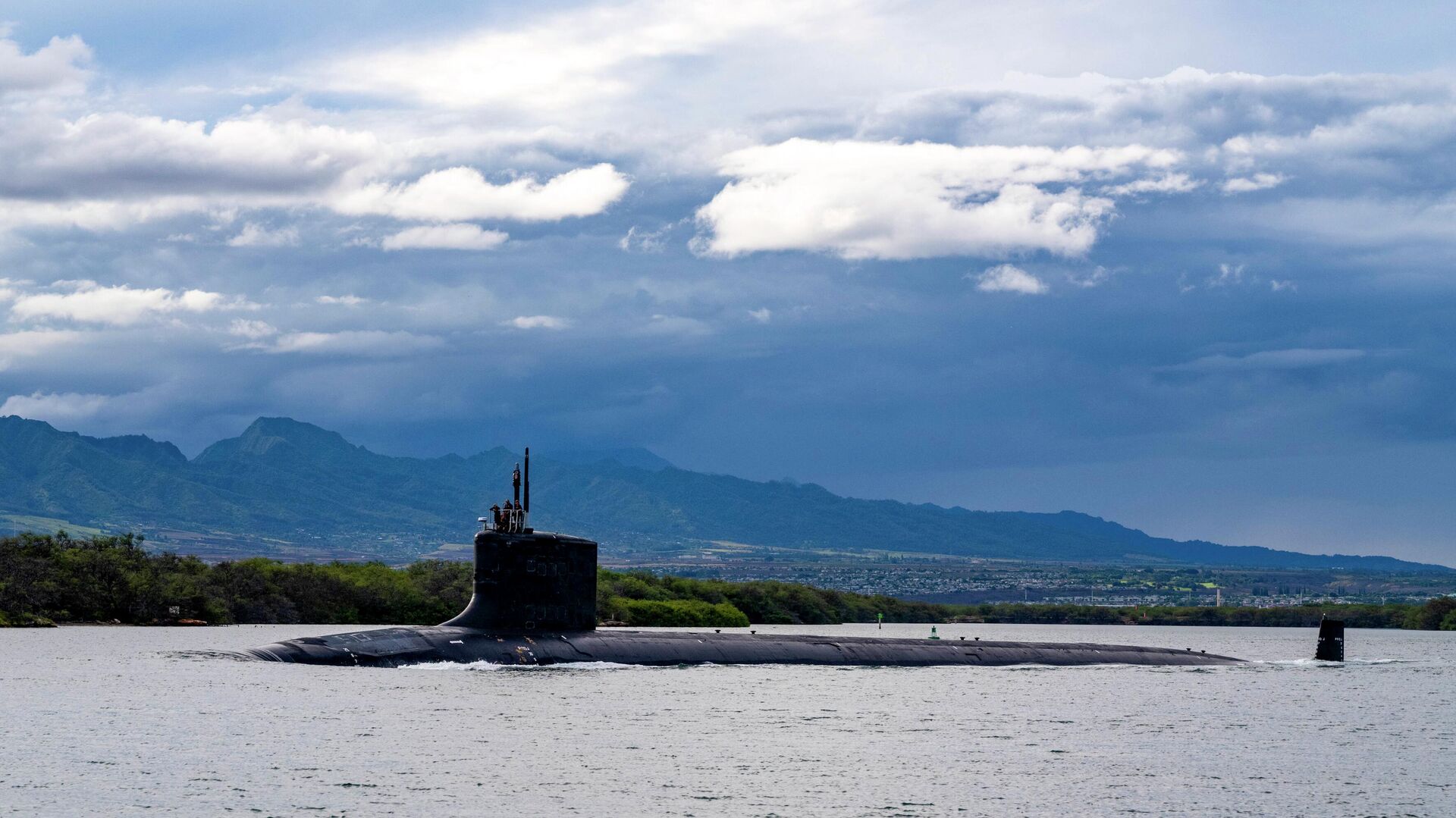China Raises Alarm After Report Saying Australia May Get Weapons-Grade Uranium as Part of AUKUS Deal
13:51 GMT 20.07.2022 (Updated: 15:20 GMT 28.05.2023)

© AP Photo / Amanda Gray
Subscribe
Australia, the US, and UK announced the trilateral AUKUS pact last September. Under the terms of the deal, Australia will build advanced nuclear-powered attack submarines (SSNs). The bloc’s members also agreed to cooperate on the production of nuclear-capable hypersonic weapons.
Beijing has called upon the governments of Australia, the United Kingdom, and the United States to scrap the AUKUS pact after a new report released on Wednesday warned that the “tonnes of weapon-grade uranium” could potentially be transferred to Canberra under the trilateral arrangement.
“The US, the UK and Australia should respond to the concerns of the international community, carry out international obligations of nuclear non-proliferation, and cancel the wrong decision for the collaboration on nuclear-powered submarines," Chinese Foreign Ministry spokesperson Wang Wenbin said at a press conference on Wednesday.
Wang was commenting on the new report, titled "A Dangerous Conspiracy: The Nuclear Proliferation Risk of the Nuclear-powered Submarines Collaboration in the Context of AUKUS," which was jointly released by the state-backed China Institute of Nuclear Industry Strategy (CINIS) and China Arms Control and Disarmament Association (CACDA). Both the Chinese organizations work in the domain of nuclear power and global disarmament.
A press release by the CACDA on the research report’s launch said that the AUKUS pact not only violates the 1970 Nuclear Non-Proliferation Treaty (NPT), but also poses "great legal and technical challenges” to the safeguards system of the International Atomic Energy Agency (IAEA), the global nuclear power watchdog.
"This will be the first time since the entry into force of the Treaty on the Non-Proliferation of Nuclear Weapons (NPT), that nuclear-weapon states transfer tons of weapon-grade nuclear materials to a non-nuclear-weapon state, enough to manufacture nearly a hundred pieces of nuclear weapons," the press release remarked.
Australia ratified the NPT in 1973, three years after it came into effect. The NPT, deemed to be a cornerstone of the global non-proliferation and disarmament regime, prohibits non-nuclear weapons states from acquiring or developing nuclear weapons. Under the agreement, only the five permanent members of the United Nations Security Council (UNSC)—Russia, the US, France, the United Kingdom and China—are sanctioned to have nuclear powers.
Pan Qilong, the chairman of CINIS, said that the AUKUS pact could be a precursor to Canberra developing its own nuclear weapons in the future.
“The AUKUS nuclear-powered submarine collaboration will cause other adverse effects, including undermining the global strategic stability and balance, posing serious nuclear security risks, triggering potential arms race in nuclear-powered submarines, and weakening the current international missile export control regime,” the Chinese think tanks cautioned.
Further, the Chinese experts called upon the international community to urge the AUKUS pact members to “revoke the wrong decision.”
The eight-chapter long report is the first by Chinese academic institutes on the AUKUS agreement after it was unveiled last September.
Beijing has been vocal in its criticism of the AUKUS pact, describing it as “exclusionary.” The Chinese Foreign Ministry has also accused the US of instigating a “nuclear arms race” in the region.
Besides Beijing, several ASEAN states such as Malaysia and Indonesia have also criticized AUKUS for triggering a potential “arms race.”


